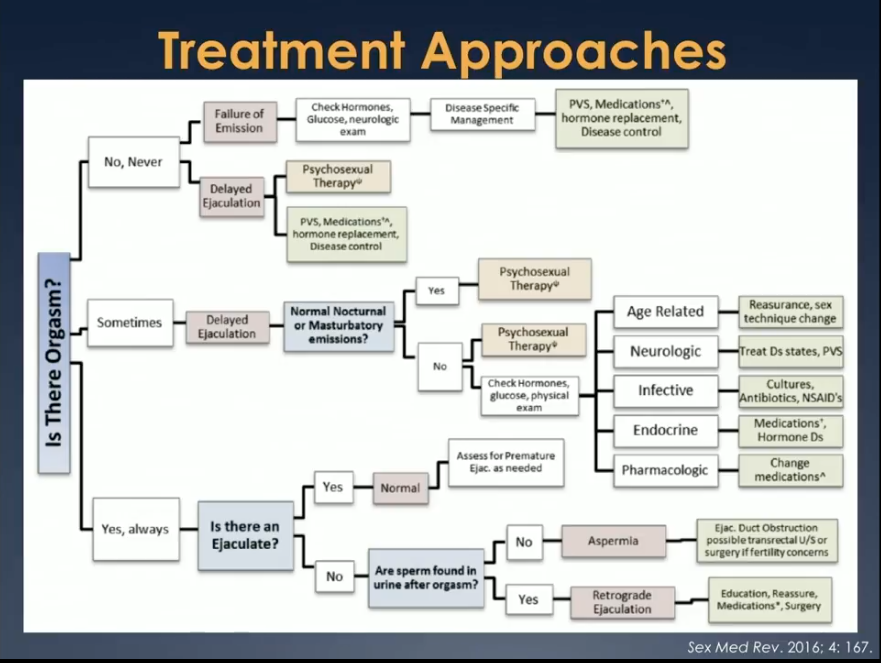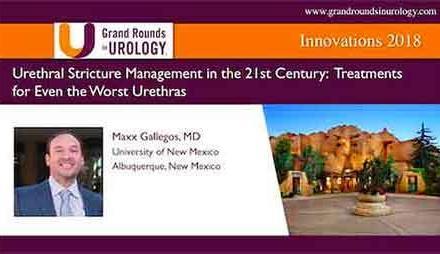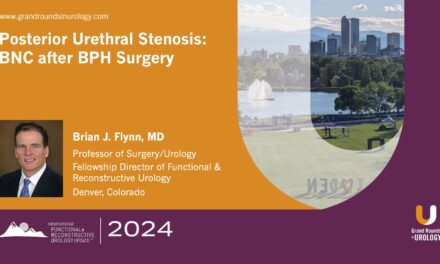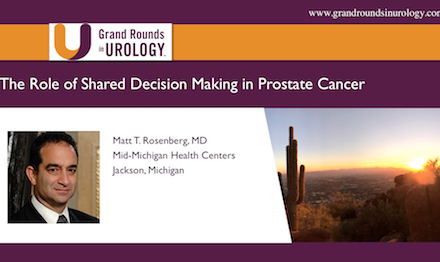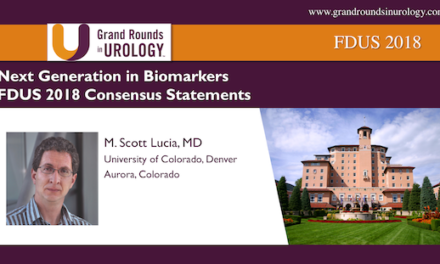Alexander W. Pastuszak, MD, PhD, MD, PhD presented “Male Anorgasmia: From “No” to “Go!”” during the 23rd Annual Innovations in Urologic Practice on September 14, 2018 in Santa Fe, New Mexico.
How to cite: Pastuszak, Alexander W. “Male Anorgasmia: From “No” to “Go!” September 14, 2018. Accessed [date today]. https://grandroundsinurology.com/male-anorgasmia-from-no-to-go/
Male Anorgasmia: From “No” to “Go!” – Summary:
Alexander Pastuszak, MD, PhD, reviews the anatomy and physiology relevant to delayed ejaculation and anorgasmia, as well as the causes and diagnosis of these conditions. He also discusses psychosexual and behavioral coaching treatment approaches for these conditions and evidence for pharmacotherapy options.
Abstract:
Delayed ejaculation and anorgasmia, defined as persistent or recurrent delay, difficulty, or absence of orgasm after sufficient sexual stimulation that causes personal distress, occurs in 2%-11% of men. These conditions are in part due to an imbalance between excitatory (dopamine, oxytocin, norepinephrine) and inhibitory (prolactin, serotonin) neurohormones. The diagnosis criteria for these conditions is an intravaginal ejaculatory latency time (IELT) greater than 25 minutes.
Alcohol, fluoxetine, imipramine, paroxetine, and medications with selective serotonin reuptake inhibitors (SSRIs) are among the most common somatic considerations that may impact a patient’s ability to orgasm. Treatment should be multidisciplinary, concurrently incorporating psychosexual and medical therapy. Currently, there is no FDA-approved medication for delayed ejaculation or anorgasmia. While numerous medical therapies are available, there is overall poor evidence supporting their efficacy. The best supported medications include bupropion, cabergoline, oxytocin, cyproheptadine, and yohimbine. Even so, evidence supporting these drugs is primarily limited to underpowered, retrospective studies.
About Innovations in Urologic Practice
Innovations in Urologic Practice (IUP) is an annual CME-accredited conference devoted to updating urologists on the rapidly changing healthcare environment. Topics focus on innovative diagnostic and treatment strategies, controversies, new and currently developing technologies, and challenges in today’s urologic practice. Dr. Taylor presented this lecture during the 23rd IUP in 2018. Please visit this page in order to learn more about future IUP meetings.
ABOUT THE AUTHOR
Alexander W. Pastuszak, MD, PhD, is an Assistant Professor of Surgery and an Adjunct Assistant Professor of Pathology at the University of Utah School of Medicine. Dr. Pastuszak earned his undergraduate degree at Yale University, New Haven, Connecticut, and completed his MD and PhD at the University of California, San Francisco. He completed both his urology residency and a fellowship in male reproductive medicine and surgery with Drs. Larry I. Lipshultz and Dolores J. Lamb at Baylor College of Medicine in Houston, Texas. Dr. Pastuszak specializes in the treatment of male infertility, as well as both male and female sexual dysfunction. His research interests include Peyronie’s disease, Dupuytren’s contracture, Ledderhose disease, fibrosis, fibroblasts, and TGF-β, among others. His other professional interests include male to female transgender reassignment, adult circumcision, benign prostatic hyperplasia, prostatitis, epididymitis/orchitis, and general urology. Dr. Pastuszak is also a respected educator, and received the prestigious Norton Rose Fulbright Faculty Excellence Award for Enduring Educational Materials in 2018.

